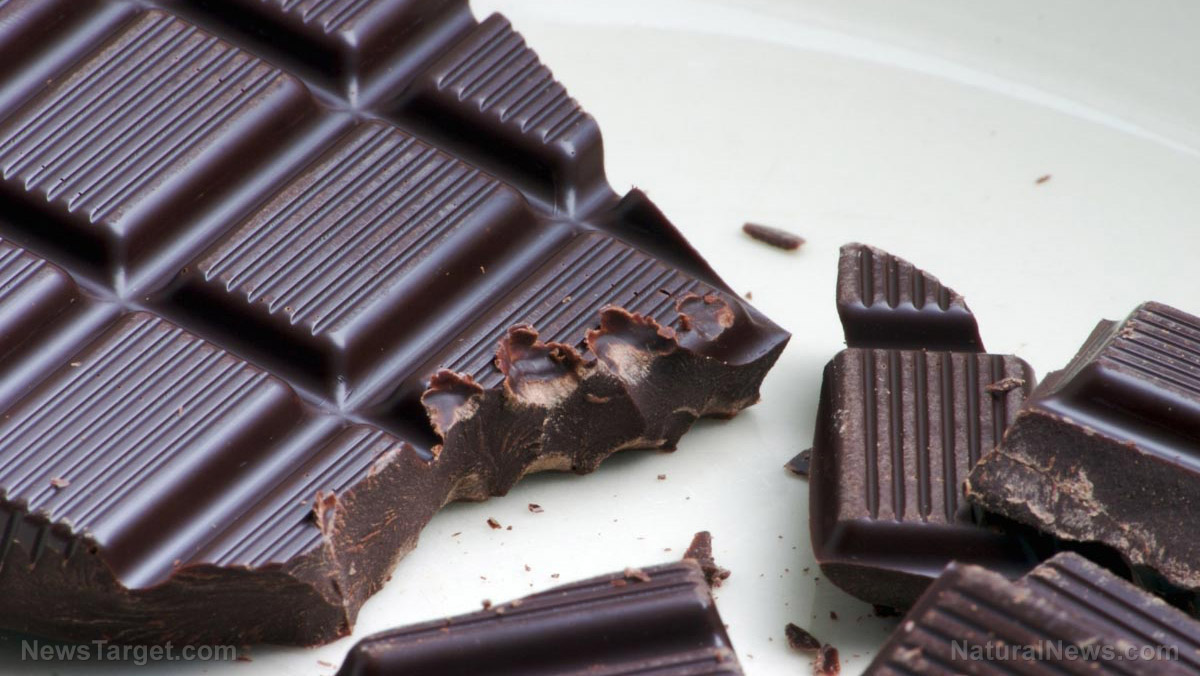Polyphenols in dark chocolate protect against metabolic syndrome
04/02/2018 // Janine Acero // Views
Tags: Anxiety, cardiovascular disease, chronic stress, dark chocolate, metabolic syndrome, polyphenols

- During 2001-2002, the study involved 1,514 men and 1,528 women above 18 years old, without any clinical evidence of cardiovascular disease or any other chronic disease, at baseline, and living in greater Athens area, Greece.
- The researchers performed a 10-year follow-up in 2011-2012, involving 2,583 participants (75 percent retention).
- The team calculated the participants' dark chocolate intake using validated food frequency questionnaires (FFQs), while they assessed their anxiety levels with the Spielberg Anxiety Questionnaire.
- Data analysis showed that individuals with MetS reported significantly higher anxiety levels than those without MetS.
- Among subjects with lower levels of anxiety, every 25-mg increase in their daily intake of dark chocolate polyphenols reduced the chances of MetS risk by five percent, after adjustment for gender, age, and physical activity levels.
- However, the researchers found no such association in participants with higher levels of anxiety.
The research team concluded that the daily consumption of dark chocolate could have a favorable effect on the development of MetS in individuals with low levels of anxiety and chronic stress. The team noted that the moderating effect of stress levels in chocolate intake warrants further investigation.
Journal Reference:
Georgousopoulou E, Mellor D, Naumovski N, Panagiotakos D, Chrysohoou C, Skourlis N, Tousoulis D, Stefanadis C, Pitsavos C. ANXIETY LEVELS MODERATE THE PROTECTIVE EFFECT OF DARK CHOCOLATE POLYPHENOL INTAKE AGAINST METABOLIC SYNDROME: THE ATTICA STUDY. Journal of Nutrition & Intermediary Metabolism. June 2017;8:97. DOI: 10.1016/j.jnim.2017.04.139
Related Topics
Anxiety cardiovascular disease chronic stress dark chocolate metabolic syndrome polyphenolsLatest News
Related News
11/16/2023 / By Lance D Johnson
11/16/2023 / By Evangelyn Rodriguez
11/14/2023 / By Olivia Cook
10/25/2023 / By Olivia Cook
10/24/2023 / By Olivia Cook
10/19/2023 / By Laura Harris
Take Action:
Support Natural News by linking to this article from your website.
Permalink to this article:
Copy
Embed article link:
Copy
Reprinting this article:
Non-commercial use is permitted with credit to NaturalNews.com (including a clickable link).
Please contact us for more information.
Please contact us for more information.






















